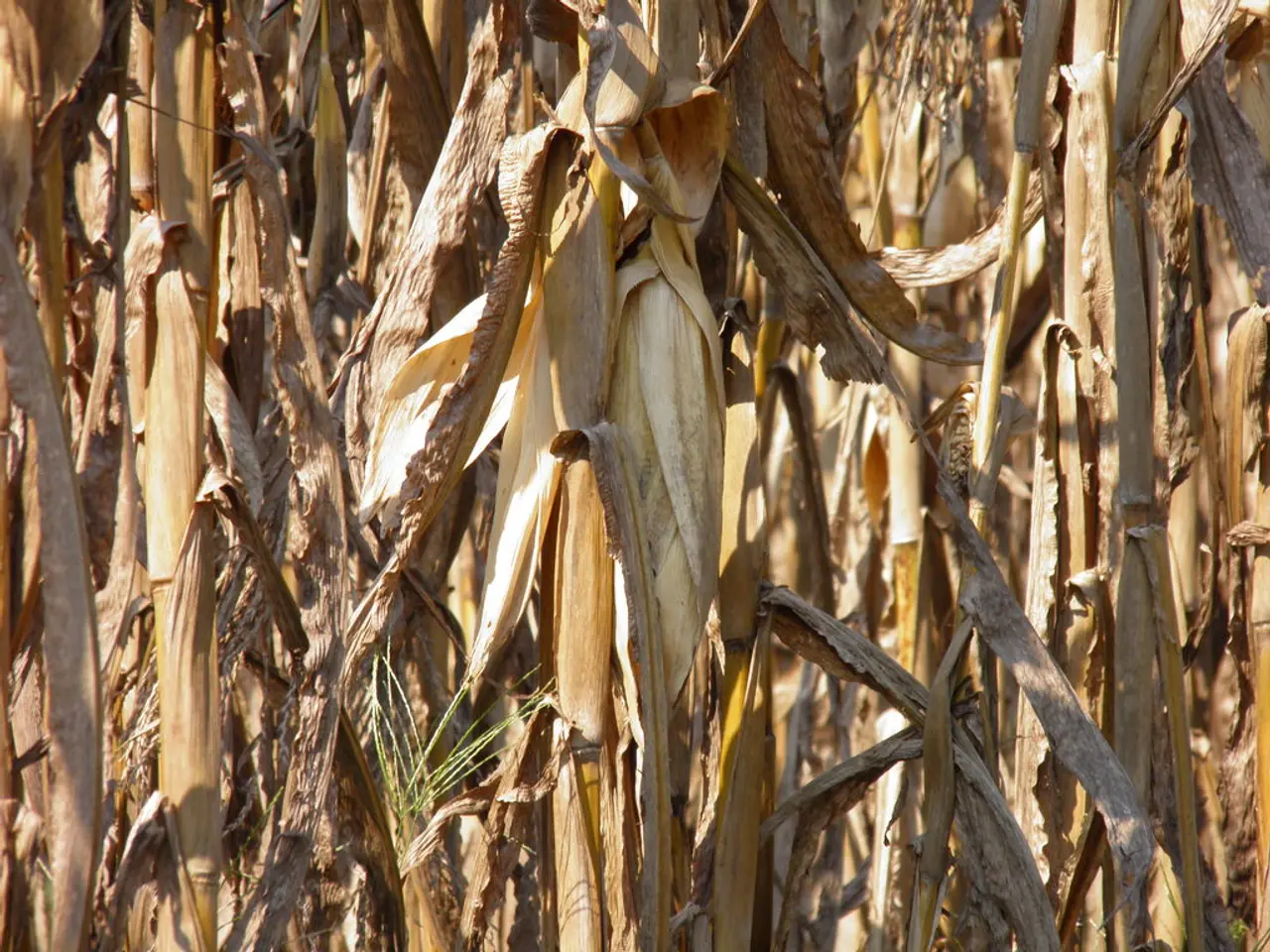Threat to Cereal Crops Yields Fear Among Farmers
Heavy Rain Causes Harvest Pressure for Farmers in Baden-Württemberg
Heavy rain in the German state of Baden-Württemberg is causing concern for farmers, particularly those in higher elevation areas like the Baar, Hegau, and Lake Constance region. The prolonged rainfall has led to delayed harvesting, increased crop diseases, lodging (where plants fall over), and quality reduction for wheat, rye, oats, and rapeseed.
The Ministry of Agriculture in Stuttgart has reported that the regions on the Franconian Plateau, Hohenlohekreis, Neckar-Odenwaldkreis, Kraichgau, Rhine-Main, and parts of the Main-Tauber district are now under time pressure due to the current weather conditions. These areas, where the grain typically matures early, are experiencing pressure to harvest their crops before the quality is compromised.
Recent rain events have also affected the timing of the grain harvest in these regions, putting farmers under pressure to bring in their crops as soon as possible. Areas that were very dry and where the grain ripened quickly are also now under time pressure due to these recent rain events. A significant portion of the wheat and rapeseed harvest in these areas has not been brought in, with 70 to 90 percent of the fields remaining untouched.
The town of Riedlingen in Baden-Württemberg has experienced heavy rain events recently, which may contribute to these issues. Higher-elevation areas such as the Swabian Alb or the southeastern part of the state with alpine influence, which had sufficient rainfall, are less affected by the time pressure issue due to their higher elevation and moisture levels.
The Baden-Württemberg Association of Farmers (BLHV) has warned that what is still standing in the fields is at acute risk of quality loss. High humidity and heat can promote fungal diseases that can significantly impair the quality of the harvest. The protein content of the wheat harvest is decreasing due to the heavy rain.
In such cases, potential solutions often recommended include the use of more resistant crop varieties, improved drainage systems in fields to prevent waterlogging, adjusted sowing and harvesting schedules to avoid the wettest periods, and integrated pest and disease management to deal with increased fungal and bacterial pressures due to humidity.
While there is limited direct information about the impact of prolonged heavy rain on wheat and rapeseed harvest in Baden-Württemberg in 2025, these impacts and solutions are inferred based on standard agricultural knowledge about the effects of heavy rainfall on these crops in temperate European regions. For more specific or updated data, consulting local agricultural extension services or official reports from Baden-Württemberg’s Ministry of Rural Affairs would be advisable.
Farmers in other regions of Baden-Württemberg, such as the Franconian Plateau, Hohenlohekreis, Neckar-Odenwaldkreis, Kraichgau, Rhine-Main, and parts of the Main-Tauber district, are similarly experiencing time pressure due to the current weather conditions. As a result, they are under pressure to harvest their crops before the quality is compromised by the humidity and heat.







